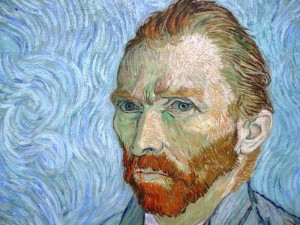Reflections on learning
 The brilliant educational thinker, John Dewey, argued that “the purpose of education is to bring meaning to experience,” but discovering and embedding that meaning is not always straightforward. All too often, our ‘learning’ experiences are superficial and temporary: we learning something for a specific purpose, it’s “just in time” and then forgotten. Learning becomes a life-changing force when knowledge becomes inspiration and action long after the event. A crucial part of that process is reflection.
The brilliant educational thinker, John Dewey, argued that “the purpose of education is to bring meaning to experience,” but discovering and embedding that meaning is not always straightforward. All too often, our ‘learning’ experiences are superficial and temporary: we learning something for a specific purpose, it’s “just in time” and then forgotten. Learning becomes a life-changing force when knowledge becomes inspiration and action long after the event. A crucial part of that process is reflection.
Reflection, the part of learning that draws relevance and meaning from new information and experiences, is an exercise that is separate from the activity itself. It is only away from the event that we can see with greater perspective, wider context and personal application.
I’m extremely conscious that deep learning takes time and effort. All too often, learning is seen as no more than the acquisition and recollection of facts and figures. Benjamin Bloom described this level of thinking skill at the simplest cognitive ability. In today’s information saturated and technology empowered society, I would argue it is the least valuable mental skill. Sadly, this ‘rote’ learning is the easiest to assess which is why many organisations (and governments) pursue it with such vigour.
We can crudely identify two motivations for learning: purpose and curiosity.
Purpose driven learners are looking for answers. Curiosity driven learners are hoping for discovery.
Most ‘formal’ learning is purpose driven: people have a clear objective and requirement to obtain specific knowledge, skills or understanding. Personal passions and lifelong learning are often characterised by curiosity – “I simply want to learn more.”
Although it would be easy to make a value judgement about these different motivations, there both equally important at different times. “Where are my keys?” can be a much more pressing question than “What’s the meaning of Life?” despite appearing much more trivial!
 In the same way, reflective practice in learning can operate at different levels. For purpose-driven learners, reflective practice is the equivalent of a mirror: you are expecting to have information reflected back precisely – you are seeking accurate recall. For curiosity-driven learners, reflective practice is much more like an impressionist painting: it represents the original information that has been adapted, interpreted and personalised by the learner – this is personal transformation.
In the same way, reflective practice in learning can operate at different levels. For purpose-driven learners, reflective practice is the equivalent of a mirror: you are expecting to have information reflected back precisely – you are seeking accurate recall. For curiosity-driven learners, reflective practice is much more like an impressionist painting: it represents the original information that has been adapted, interpreted and personalised by the learner – this is personal transformation.
Every good teacher creates space for reflection in their lessons and the practice is usually initiated with a review and question. Those questions techniques can take numerous forms (and can be replicated online):
- Binary questions
- Scales
- Sandboxes
- Open questions
Binary questions, that is questions with a correct answer, are the reflections with which we are most familiar – these are the questions that populate most formal exams and tests and can take the form of multiple choice questions or specific problems. Binary questions address knowledge.
Scales offer the user the chance to plot their ‘position’ between two extremes. The scales can be quantised into a number of set points (such as the Likert scale used in many surveys) or continuous but in both cases there is no right or wrong answer, rather it is way of determining relative value. Scales measure attitude and can be used to “bookend” learning activities to demonstrate “distance-travelled.”
Giving learners the opportunity to “try it for themselves” in real or virtual ‘sandboxes’ not only improves competence and mastery, it also develops confidence. These activities are often described as ‘simulations’ but can be quite simple despite the grand title. Sandboxes enable used to test their ability.
Finally, and the activity that flourishes most easily face-to-face, is open questioning. These questions catalyse thinking by not prescribing any particular answer. On the contrary, the open question actively invites new ideas. Typically these questions are ‘counter factual’ (what if) questions or enquiries about personal experience or perspective. It goes without saying that open questions really thrive in social environments because participants can bounce and refine ideas off each other. Open questions are great for developing the critical judgement skills of argument.
Reflection is the essential element for embedding learning. Not only does it help us with basic recall, reflective practice, implemented well, can convert purpose-driven learning into curiosity and that, as we know, can spark a lifetime of discovery and delight.

2 Responses to “Reflections on learning”